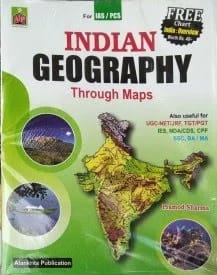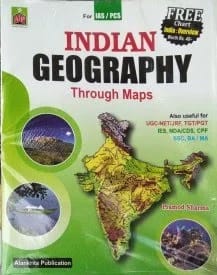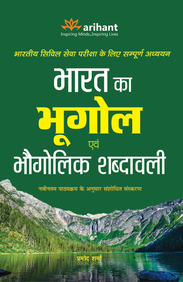Pramod Sharma Sir's Geography & Environment at IAS DARBAR







Renowned Best Seller Books of Pramod Sharma Sir
Download IAS DARBAR App from Google Playstore and Take Pramod Sharma Sir's Classes at your Home .Call On:08750069419
About Pramod Sharma Sir
# 20 Years of Experience With Civil Services.
# Worked as a Professional Writer On Geography
# He wrote more than Dozen Books On Geography
# He started His Career As professional Teacher 16 Years Before.
# Taught Geography & Environment In Renowned Institutes of Delhi and other Parts of the country,
# He is also the director of his Own Institute named Atlas IAS Institute.
# He started his career as a faculty member of G.S. in Historica in 2005.
# He was Co-director of Ushma Academy in 2006 to 2010 and as a Fuculty of Geography optional & GS.
# He taught as a faculty member of Geography Department in ALS – Delhi Since 2010 to 2013 and as a Faculty member of G.S. (Geography) in other reputed institute in Delhi in Both Medium (Hindi & English).
# His Books have been Published from Renowned Publications such as-:
#Arihant Publication
# Alankrita Publication
#Kiran Publication,
#StepUp IAS Publication.
# He is also responsible for hundreds of selection in Civil Services Exam.
Pramod Sharma Sir's Experience In Other Institutes
#Major Associated IAS Institutes are :
# ALS,Mukherjeenagar Delhi
# Sankalp IAS,R.K.Puram,Delhi
# Maluka IAS, Rajendranagar,Delhi
# GS Mentor,Mukherjeenagar
# KLA,DElhi
# GS World,Delhi
# Unacademy
# EDUNGURU IAS Gurgaon
# StepUp IAS,Mukherjeenagar,Delhi
# Super Profs Online Classes IAS,Luxminagar,Delhi
# Ravindra’s IAS Mukherjeenagar,Delhi
# Target With Alok Institute,Allahabad
# Purvanchal IAS,Gorakhpur
# Visiting Faculty of Himachal Pradesh University,Shimla
# Vivekanand IAS,Guwahati
Online Classes Experience
Atlas IAS
SuperProfs
Target With Alok
EDUNGURU
Selected Students Under Pramod Sharma Sir
Pramod Sharma Sir's Experience With Test Series
Pramod sir has a long experience of conducting test series for Geography Optional and 100s of students got benefited and finally got selection.He is well versed with answer writing. Test series is provided for :
#UPSC
#BPSC
#UPPSC
#Uttarakhand
Answer Writing Practice Sessions For Biginers With 36 Tests (20 + 16)
Geography Optional Under Renowned Faculty Pramod Sharma Sir
This is a 4 Months course under Pramod Sharma Sir.Pramod Sharma sir is renowned faculty of Geography for Civil Services. The Classes will be taken on IAS Darbar app which can be downloaded from google playstore for android Mobile Phones.- Fee has been reduced to 50%
- Course will be completed In Four Months
- Test Series is available
- Every Test 3 Toppers are given Cash Price
- Personal Support through Whats app and On Phone
- Live webinar for doubt clearance
- Installments Facility is Also Available
- Call Immediately To Book Your Seat:08750069419
Modular Course on Geography For General Studies
This is a 2-Month Course on Geography & Mapping By Pramod Sharma Sir.The Classes will be taken on IAS Darbar app which can downloaded from google playstore for androidMobile Phones.- Fee has been reduced to 50%
- Course will be completed in 2 Months
- Test Series is available
- Every Test 3 Toppers are given Cash Price
- Personal Support through Whats app and On Phone
- Live webinar for doubt clearance
- Call Immediately To Book Your Seat:08750069419
Modular Course on Environment & Ecology For General Studies
This is a 1-Month Course on Environment & Ecology By Pramod Sharma Sir. The Classes will be taken on IAS Darbar app which can downloaded from google playstore for android Mobile Phones.- Fee has been reduced to 50%
- Course will be completed in 1 Months
- Test Series is available
- Every Test 3 Toppers are given Cash Price
- Personal Support through Whats app and On Phone
- Live webinar for doubt clearance
- Call Immediately To Book Your Seat:08750069419
Pramod Sharma Sir's Experience In Other Institutes
Paper-I
Principles of Geography Physical Geography:
1. Geomorphology: Factors controlling landform development; endogenetic and exogenetic forces; Origin and evolution of the earth’s crust; Fundamentals of geomagnetism; Physical conditions of the earth’s interior; Geosynclines; Continental drift; Isostasy; Plate tectonics; Recent views on mountain building; Vulcanicity; Earthquakes and Tsunamis; Concepts of geomorphic cycles and Landscape development ; Denudation chronology; Channel morphology; Erosion surfaces; Slope development ; Applied Geomorphology : Geohydrology, economic geology and environment.
2. Climatology: Temperature and pressure belts of the world; Heat budget of the earth; Atmospheric circulation; atmospheric stability and instability. Planetary and local winds; Monsoons and jet streams; Air masses and fronto genesis, Temperate and tropical cyclones; Types and distribution of precipitation; Weather and Climate; Koppen’s, Thornthwaite’s and Trewartha’s classification of world climates; Hydrological cycle; Global climatic change and role and response of man in climatic changes, Applied climatology and Urban climate.
3. Oceanography: Bottom topography of the Atlantic, Indian and Pacific Oceans; Temperature and salinity of the oceans; Heat and salt budgets, Ocean deposits; Waves, currents and tides; Marine resources: biotic, mineral and energy resources; Coral reefs, coral bleaching; sea level changes; law of the sea and marine pollution.
4. Biogeography: Genesis of soils; Classification and distribution of soils; Soil profile; Soil erosion, Degradation and conservation; Factors influencing world distribution of plants and animals; Problems of deforestation and conservation measures; Social forestry; agro-forestry; Wild life; Major gene pool centres.
5. Environmental Geography: Principle of ecology; Human ecological adaptations; Influence of man on ecology and environment; Global and regional ecological changes and imbalances; Ecosystem their management and conservation; Environmental degradation, management and conservation; Biodiversity and sustainable development; Environmental policy; Environmental hazards and remedial measures; Environmental education and legislation.
Human Geography
1. Perspectives in Human Geography: Areal differentiation; regional synthesis; Dichotomy and dualism; Environmentalism; Quantitative revolution and locational analysis; radical, behavioural, human and welfare approaches; Languages, religions and secularization; Cultural regions of the world; Human development index.
2. Economic Geography:World economic development: measurement and problems; World resources and their distribution; Energy crisis; the limits to growth; World agriculture: typology of agricultural regions; agricultural inputs and productivity; Food and nutrition problems; Food security; famine: causes, effects and remedies; World industries:locational patterns and problems; patterns of world trade.
3. Population and Settlement Geography: Growth and distribution of world population; demographic attributes; Causes and consequences of migration; concepts of over-under-and optimum population; Population theories, world population problems and policies, Social well-being and quality of life; Population as social capital. Types and patterns of rural settlements; Environmental issues in rural settlements; Hierarchy of urban settlements; Urban morphology: Concepts of primate city and rank-size rule; Functional classification of towns; Sphere of urban influence; Rural – urban fringe; Satellite towns; Problems and remedies of urbanization; Sustainable development of cities.
4. Regional Planning:Concept of a region; Types of regions and methods of regionalisation; Growth centres and growth poles; Regional imbalances; regional development strategies; environmental issues in regional planning; Planning for sustainable development.
5. Models, Theories and Laws in Human Geography: Systems analysis in Human geography; Malthusian, Marxian and demographic transition models; Central Place theories of Christaller and Losch;Perroux and Boudeville; Von Thunen’s model of agricultural location; Weber’s model of industrial location; Ostov’s model of stages of growth.
PART II
Geography Of India
1. Physical Setting: Space relationship of India with neighboring countries; Structure and relief; Drainage system and watersheds; Physiographic regions; Mechanism of Indian monsoons and rainfall patterns, Tropical cyclones and western disturbances; Floods and droughts; Climatic regions; Natural vegetation; Soil types and their distributions.
2. Resources: Land, surface and ground water, energy, minerals, biotic and marine resources; Forest and wild life resources and their conservation; Energy crisis.
3. Agriculture: Infrastructure: irrigation, seeds, fertilizers, power; Institutional factors: land holdings, land tenure and land reforms; Cropping pattern, agricultural productivity, agricultural intensity, crop combination, land capability; Agro and social-forestry; Green revolution and its socio- economic and ecological implications; Significance of dry farming; Livestock resources and white revolution; aqua – culture; sericulture, apiculture and poultry; agricultural regionalisation; agro-climatic zones; agroecological regions.
4. Industry: Evolution of industries: Locational factors of cotton, jute, textile, iron and steel, aluminium, fertilizer, paper, chemical and pharmaceutical, automobile, cottage and agro-based industries; Industrial houses and complexes including public sector undertakings; Industrial regionali-sation; New industrial policies; Multinationals and liberalization; Special Economic Zones; Tourism including eco – tourism.
5. Transport, Communication and Trade: Road, railway, waterway, airway and pipeline networks and their complementary roles in regional development; Growing importance of ports on national and foreign trade; Trade balance; Trade Policy; Export processing zones; Developments in communication and information technology and their impacts on economy and society; Indian space programme.
6. Cultural Setting: Historical Perspective of Indian Society:Racial, linguistic and ethnic diversities; religious minorities; major tribes, tribal areas and their problems; cultural regions; Growth, distribution and density of population; Demographic attributes: sex-ratio, age structure, literacy rate, work-force, dependency ratio, longevity; migration (inter-regional, intra- regional and international) and associated problems; Population problems and policies; Health indicators.
7. Settlements:Types, patterns and morphology of rural settlements; Urban developments; Morphology of Indian cities; Functional classification of Indian cities; Conurbations and metropolitan regions; urban sprawl; Slums and associated problems; town planning; Problems of urbanization and remedies.
8. Regional Development and Planning:Experience of regional planning in India; Five Year Plans; Integrated rural development programmes; Panchayati Raj and decentralised planning; Command area development; Watershed management; Planning for backward area, desert, drought prone, hill, tribal area development; multi-level planning; Regional planning and development of island territories.
9. Political Aspects:Geographical basis of Indian federalism; State reorganisation; Emergence of new states; Regional consciousness and inter state issues; international boundary of India and related issues; Cross border terrorism; India’s role in world affairs; Geopolitics of South Asia and Indian Ocean realm.
10. Contemporary Issues: Ecological issues: Environmental hazards: landslides, earthquakes, Tsunamis, floods and droughts, epidemics; Issues relating to environmental pollution; Changes in patterns of land use; Principles of environmental impact assessment and environmental management; Population explosion and food security; Environmental degradation; Deforestation, desertification and soil erosion; Problems of agrarian and industrial unrest; Regional disparities in economic development; Concept of sustainable growth and development; Environmental awareness; Linkage of rivers; Globalisation and Indian economy.
NOTE: Candidates will be required to answer one compulsory map question pertinent to subjects covered by this paper.
GS Foundation Batch for Civil Services
This is a one year Course on General Studies Foundation Batch .The Classes will be taken on IAS Darbar app which can be downloaded from google playstore for android Mobile Phones.- Fee has been reduced to 50%
- Course will be completed In 10 Months
- Test Series for Both Preliminary and Mainsis available
- Every Test 3 Toppers are given Cash Price
- Personal Support through Whats app and On Phone
- Live webinar for doubt clearance
- Whatsapp Group of like minded person is created for better Cooperation.
- Daily Express Newspaper Discussion is available
- Specialised Training on Mains Answer writing
- A Team of Experienced and dedicated faculties is ready to help You everytime.
- Personal Doubt Clearing sessions
- Call Immediately To Book Your Seat:08750069419
Mains Answer Writing Session on GS
This is a 2 Months Intenssive Programme Under Ajay Mishra Sir.The Classes will be taken on IAS Darbar app which can downloaded from google playstore for androidMobile Phones.- Fee has been reduced to 50%
- Course will be completed In 2 Months
- Personal Support through Whats app and On Phone
- Live webinar for doubt clearance
- Whatsapp Group of like minded person is created for better Cooperation.
- Daily Express Newspaper Discussion is available
- Specialised Training on Mains Answer writing
- A Team of Experienced and dedicated faculties is ready to help You everytime.
- Personal Doubt Clearing sessions
- Call Immediately To Book Your Seat:08750069419
History Optional
This is a 4 -Month Course on History Optional By S.K.Pandey Sir.The Classes will be taken on IAS Darbar app which can downloaded from google playstore for androidMobile Phones.- Fee has been reduced to 50%
- Course will be completed In Four Months
- Test Series is available
- Every Test 3 Toppers are given Cash Price
- Personal Support through Whats app and On Phone
- Live webinar for doubt clearance
- Installments Facility is Also Available
- Call Immediately To Book Your Seat:08750069419
Modular Course on Modern Indian History
This is a 1-Month Course on History Optional By S.K.Pandey Sir.The Classes will be taken on IAS Darbar app which can downloaded from google playstore for androidMobile Phones.- Fee has been reduced to 50%
- Course will be completed In One Months
- Test Series is available
- Every Test 3 Toppers are given Cash Price
- Personal Support through Whats app and On Phone
- Live webinar for doubt clearance
- Call Immediately To Book Your Seat:08750069419
Modular Course on Arts & Culture
This is a 1-Month Course on History Optional By S.K.Pandey Sir.The Classes will be taken on IAS Darbar app which can downloaded from google playstore for androidMobile Phones.- Fee has been reduced to 50%
- Course will be completed In One Months
- Test Series is available
- Every Test 3 Toppers are given Cash Price
- Personal Support through Whats app and On Phone
- Live webinar for doubt clearance
- Call Immediately To Book Your Seat:08750069419
Modular Course on World History
This is a 1-Month Course on History Optional By S.K.Pandey Sir.The Classes will be taken on IAS Darbar app which can be downloaded from google playstore for androidMobile Phones.- Fee has been reduced to 50%
- Course will be completed In One Months
- Test Series is available
- Every Test 3 Toppers are given Cash Price
- Personal Support through Whats app and On Phone
- Live webinar for doubt clearance
- Call Immediately To Book Your Seat:08750069419